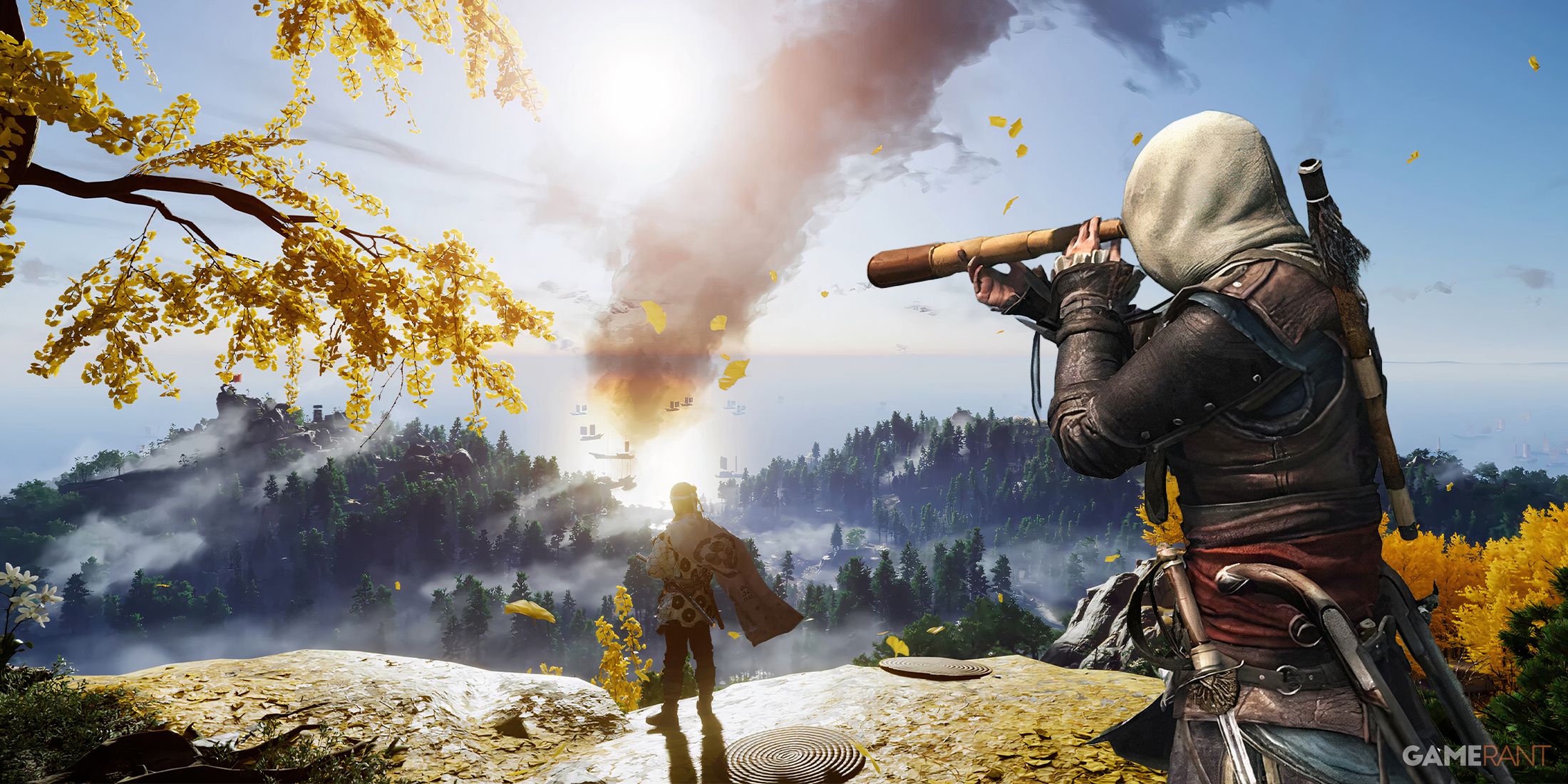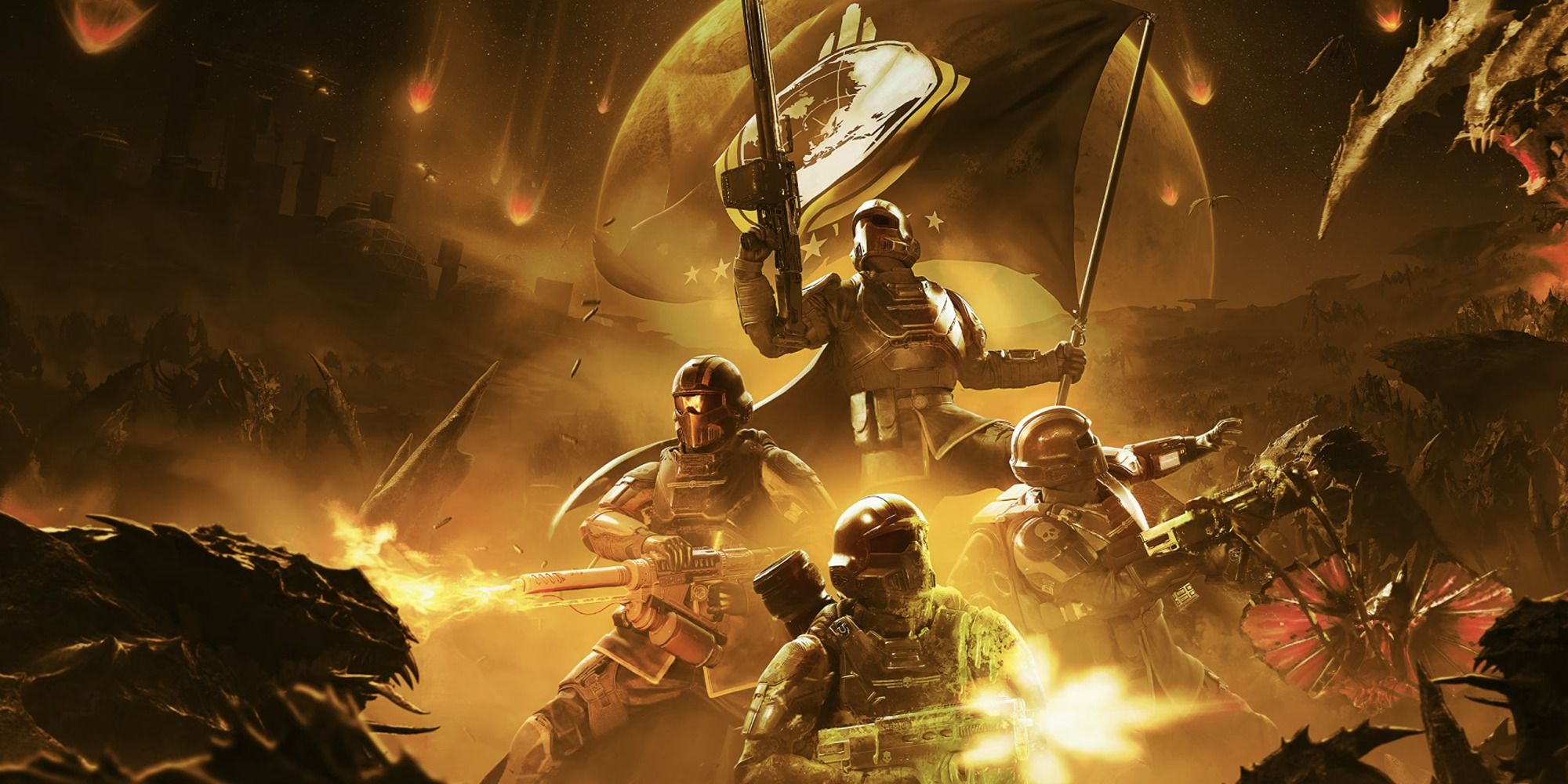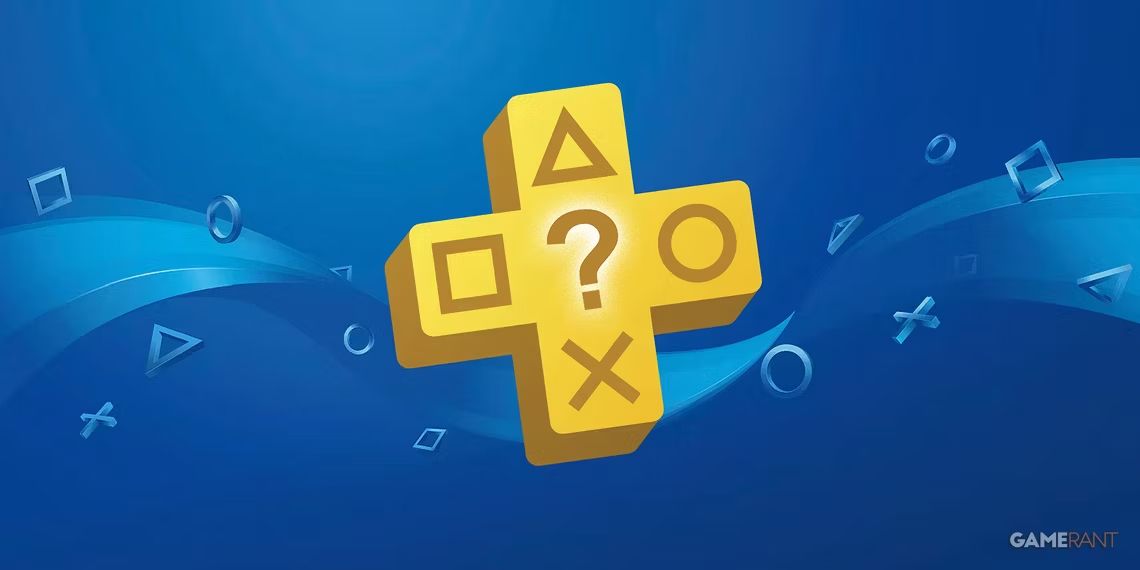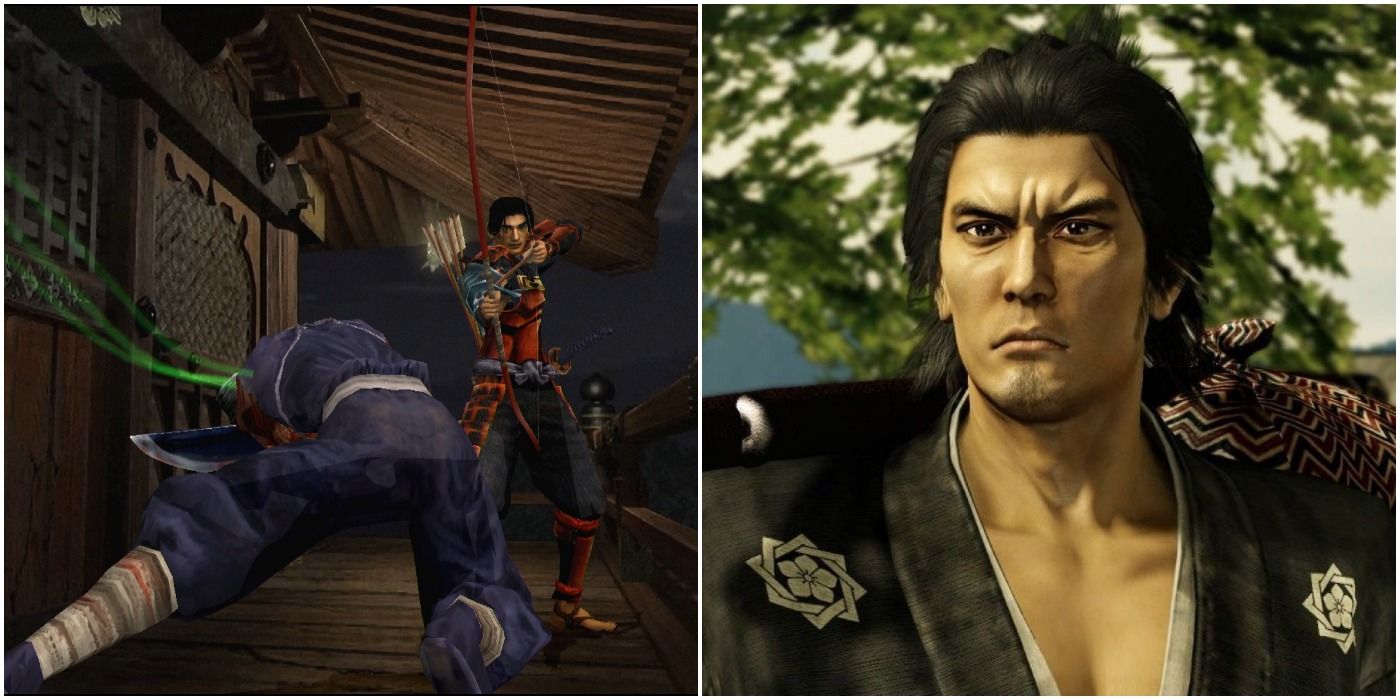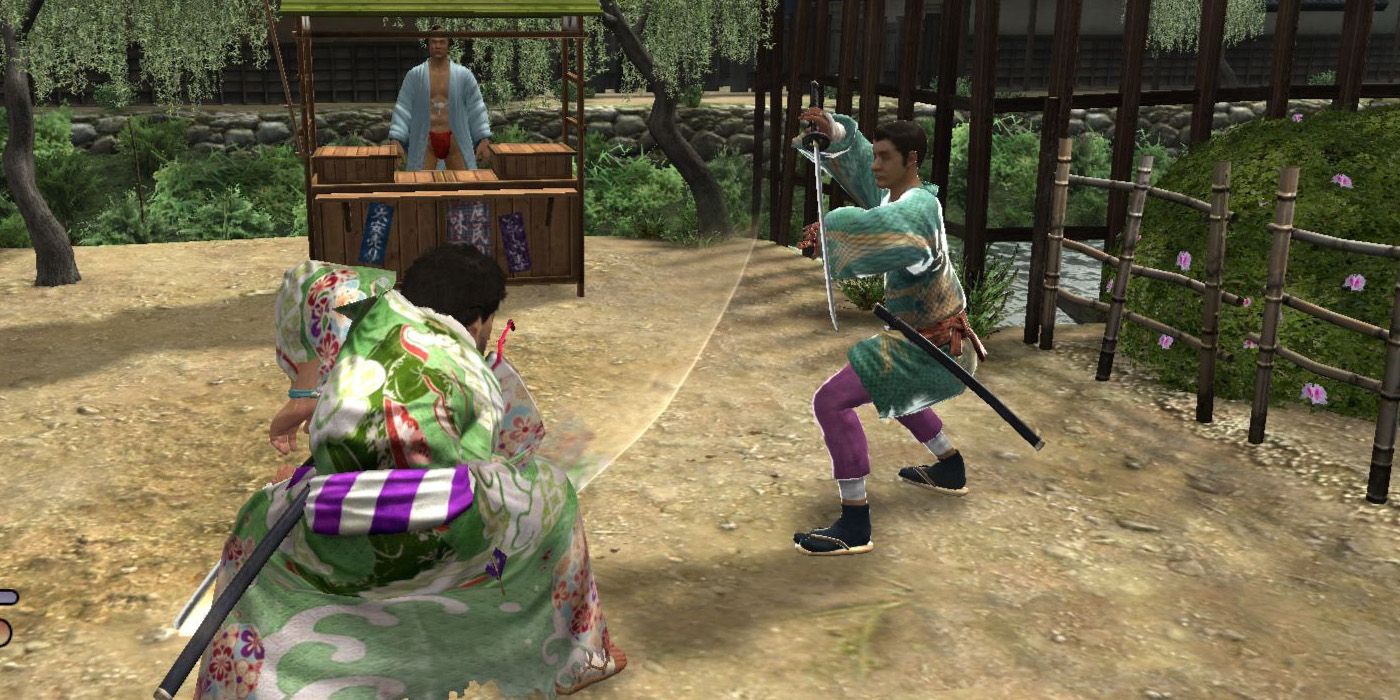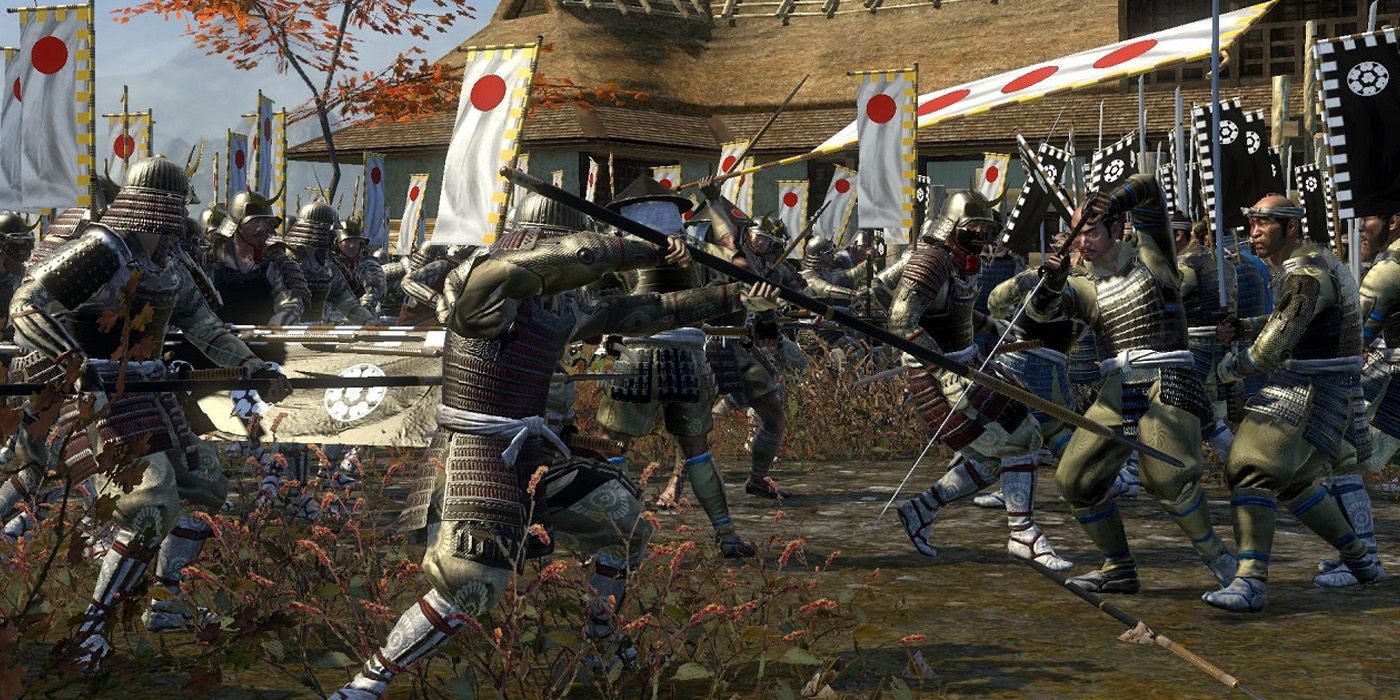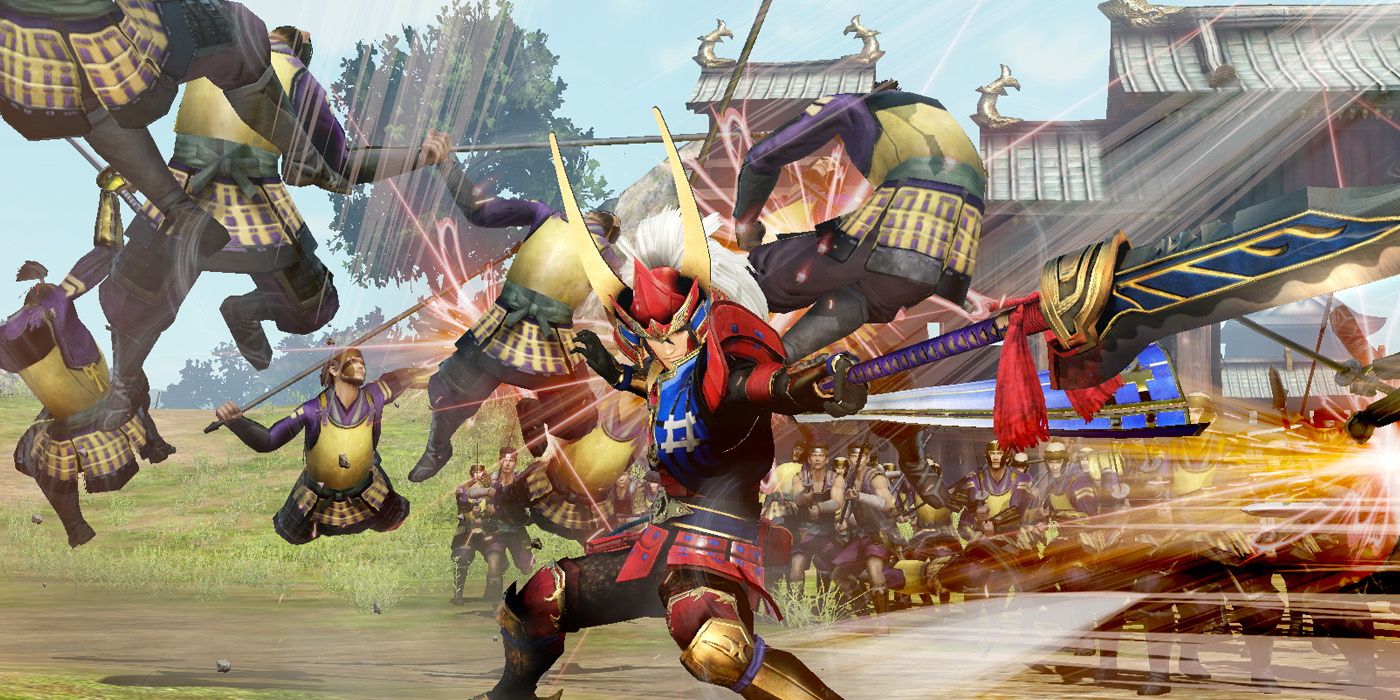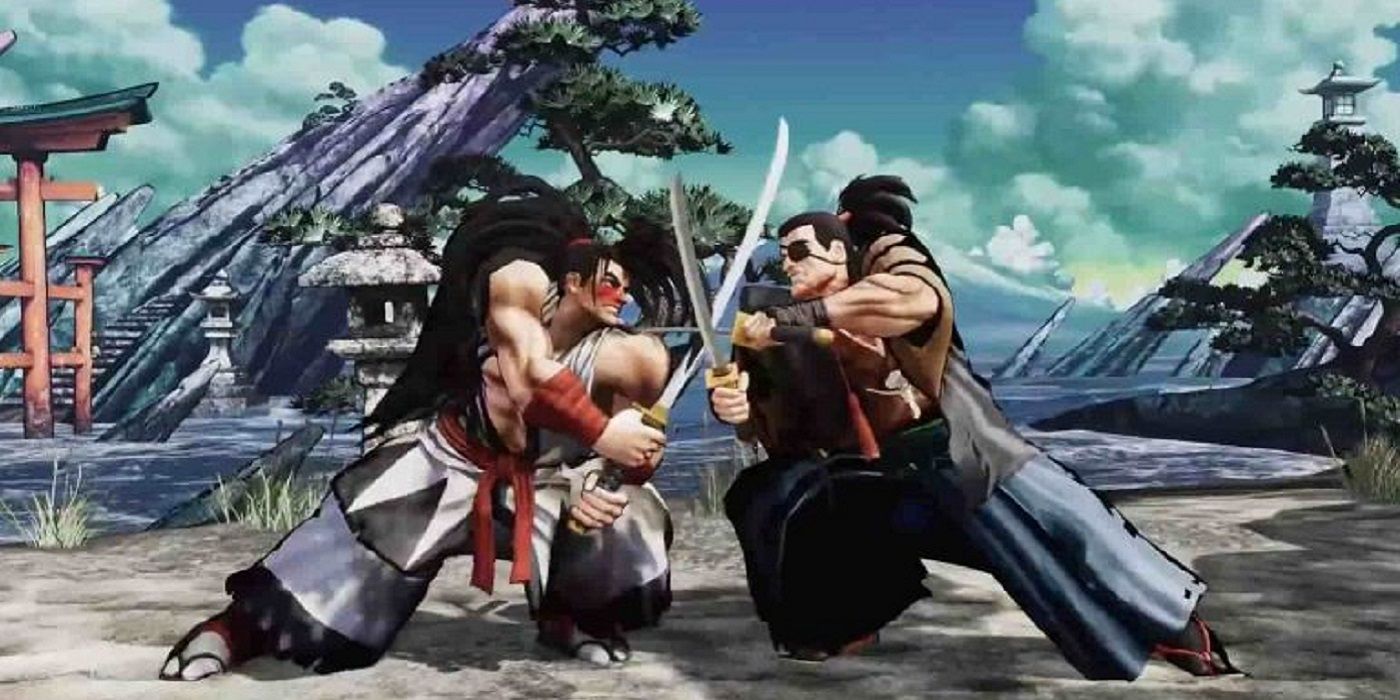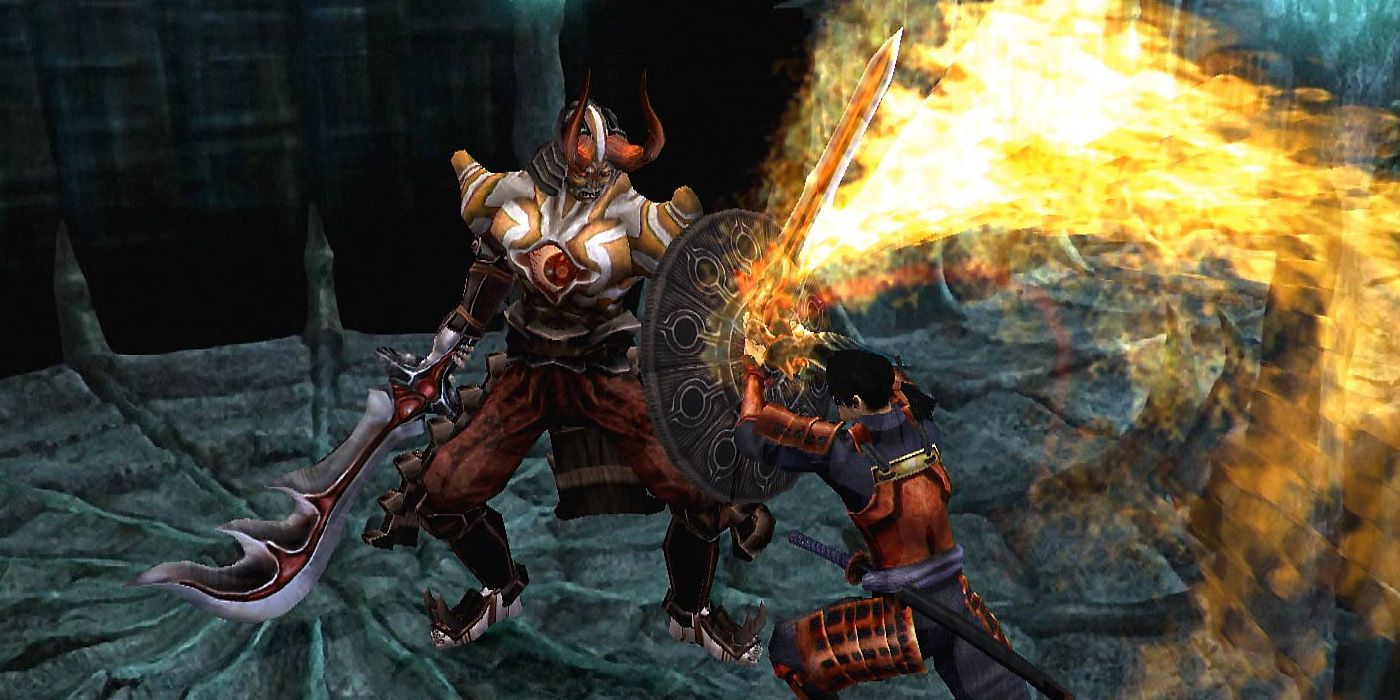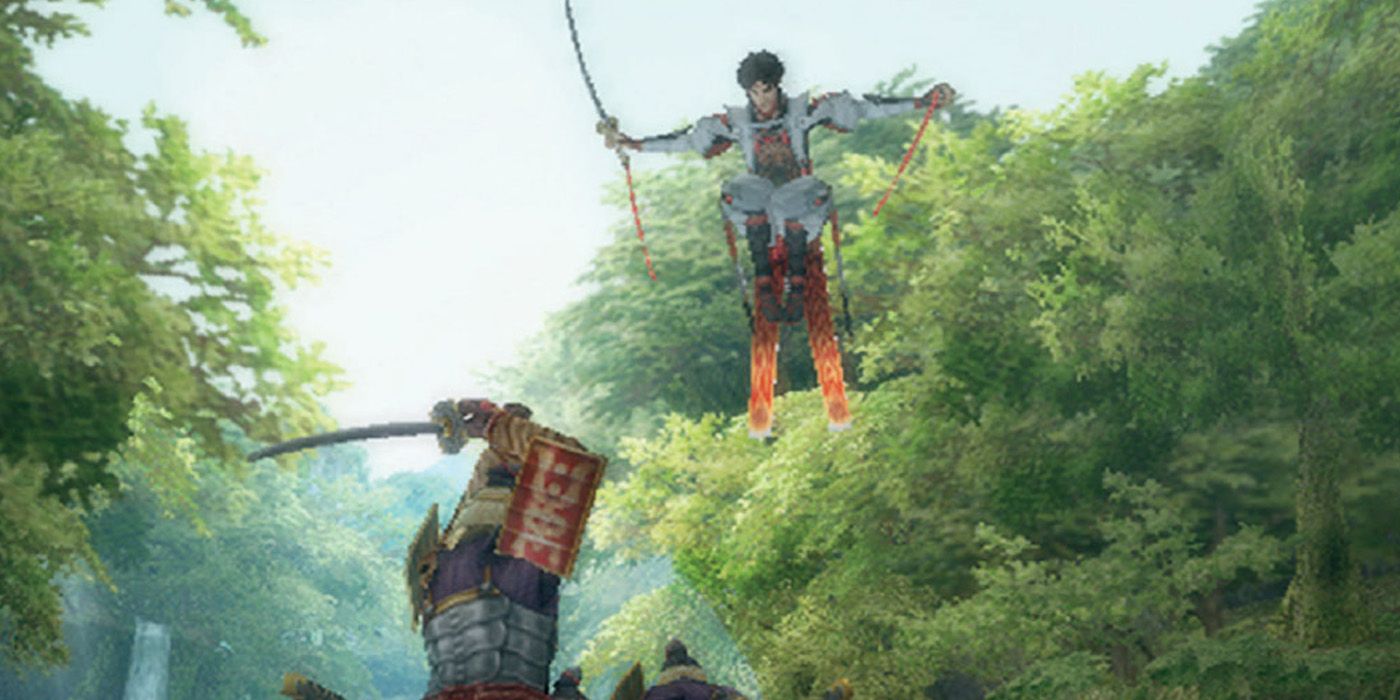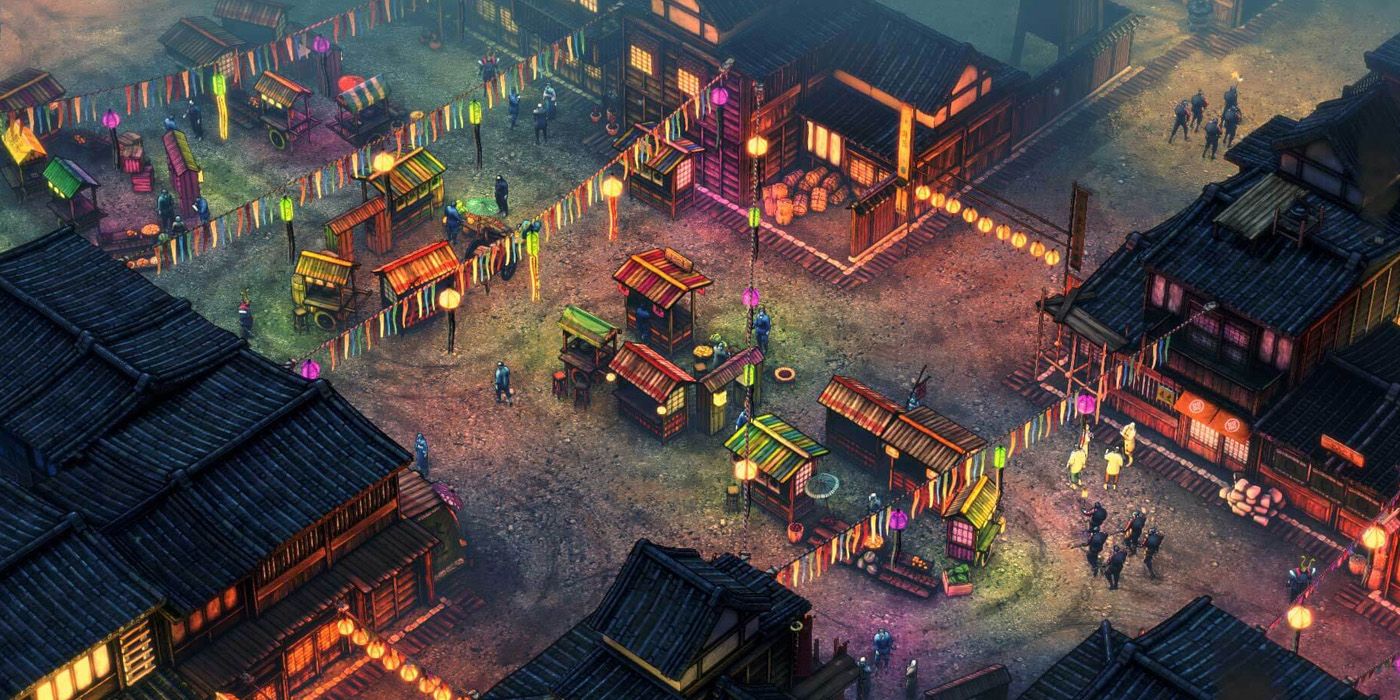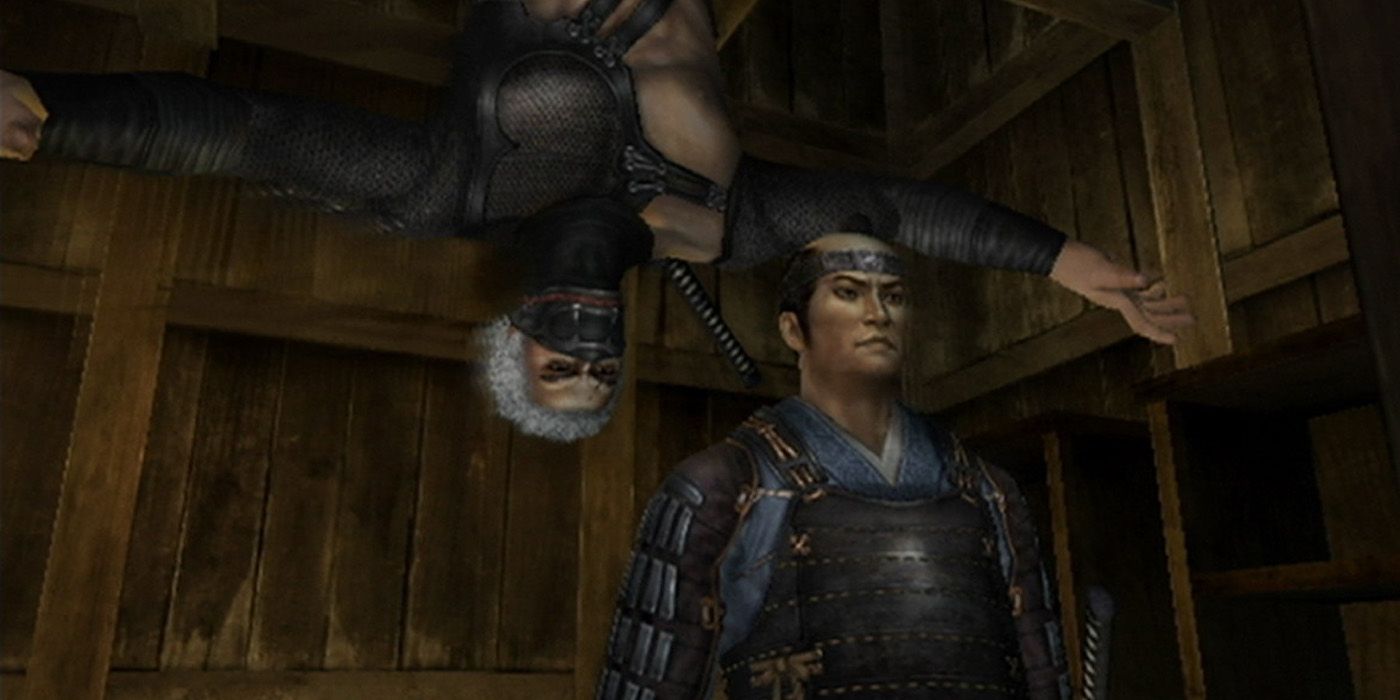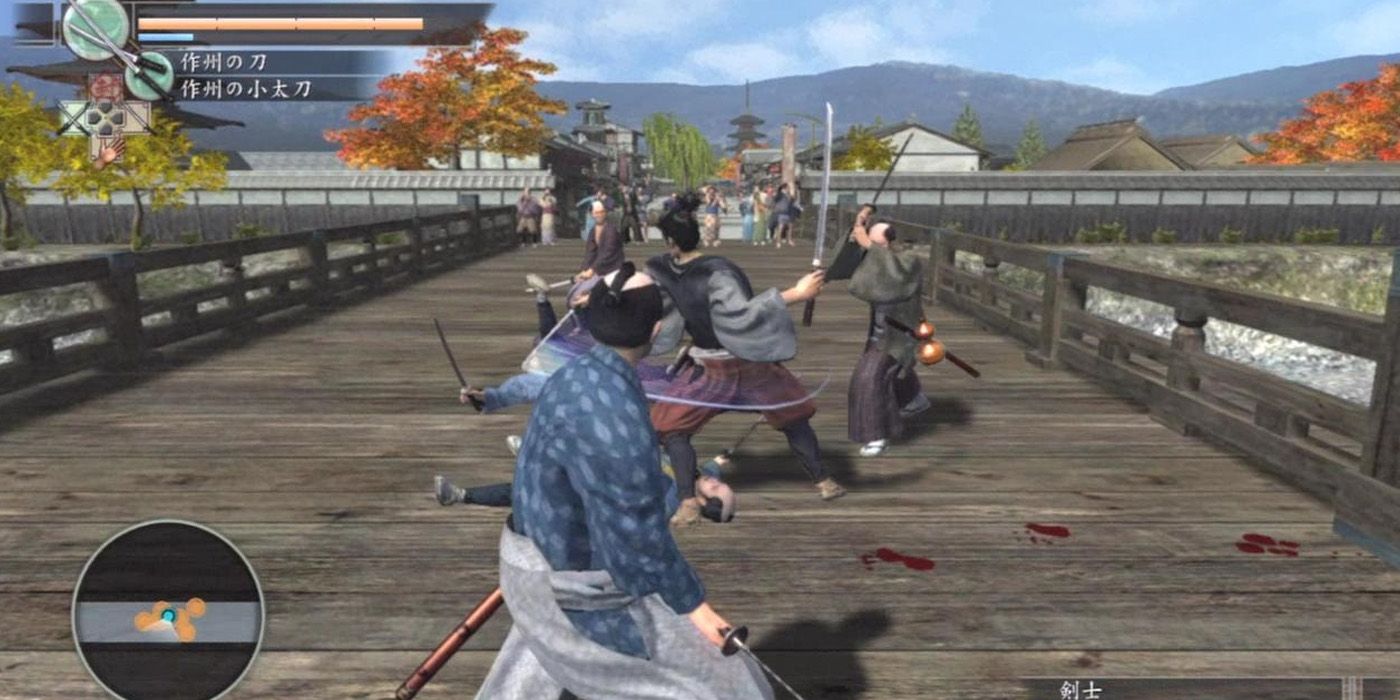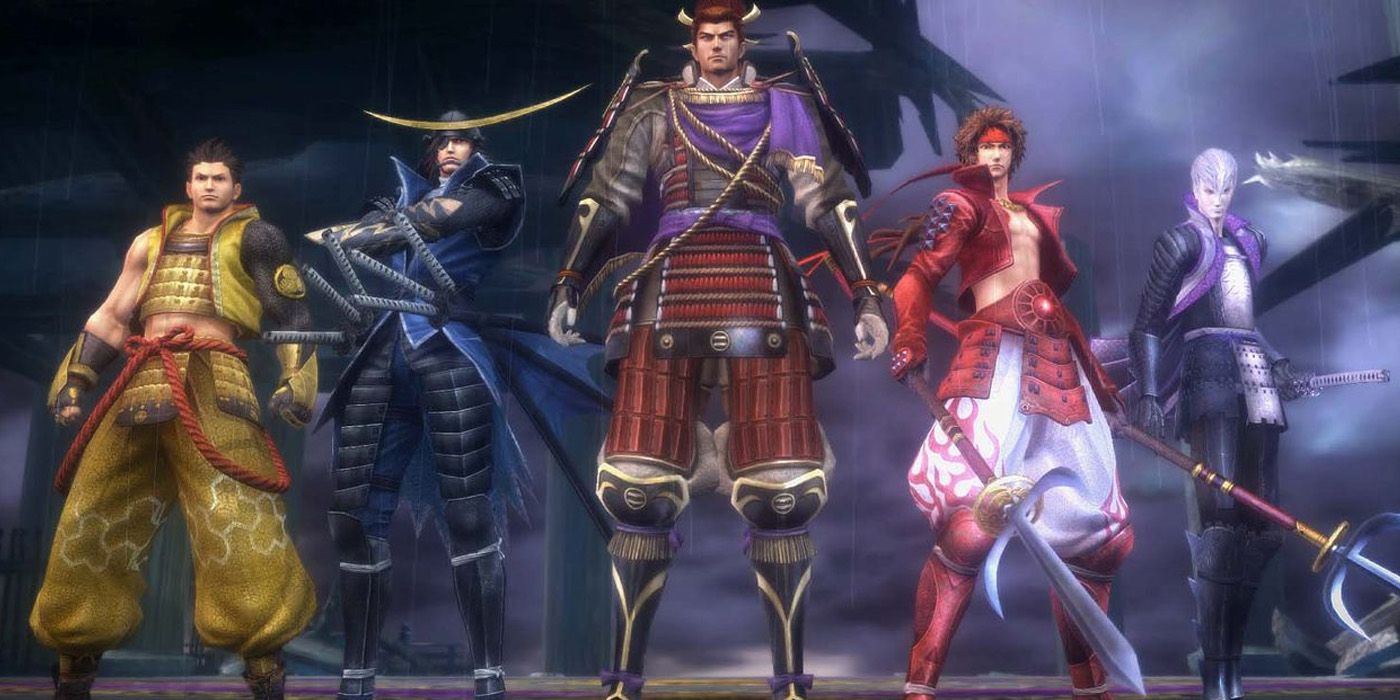Thanks to Ghost of Tsushima, action fans finally have a modern adventure set in feudal Japan. Unlike other games with Japanese elements, Tsushima showcases a more cinematic quality in both its combat and exploration. As such, gamers with a knack for stylish fights akin to Samurai Cinema will find delight while playing Tsushima. Moreover, the depth and scope of its alternate take on the Kamakura Period make Tsushima quite a memorable game.
However, fans who want to get more out of Tsushima might also want to try other games set in feudal Japan. In fact, other recent games and some older titles capture various elements of this era excellently. While not all of these games are historically accurate, they do convey the appreciation that both developers and players have for this time period. Just what are some feudal Japan-era games that might interest players?
10 Way Of The Samurai
Players who loved Tsushima and action titles will likely have heard of Way of the Samurai. While the game takes place shortly after Japan's feudal period concluded, it still fits well with the era and focuses on a unique period that is seldom highlighted. Despite it being set in the 19th century, gameplay and characters still center on samurai combat.
Players take on the role of Kenji as he battles certain NPCs throughout the story. Despite being a 2002 title, fans liked Way of the Samurai due to its branching plot points and unique battle system. Additionally, the game introduces a new "heat" system that decreases the durability of blades during combat. As such, players always have the risk of breaking their swords in combat.
9 Total War: Shogun
Fans of grand strategy games will likely have heard of the Total War series. After all, it adds real-time combat to its 4X grand strategy setup. As such, fans can see hundreds of troops clash in skirmishes and wars – some fictional, and some entirely based in history. Thanks to Total War: Shogun, players can get the same Total War experience in feudal Japan.
Whereas Tsushima sets itself in the titular Tsushima Island, Total War: Shogun will have players fight for control over Japan. In Shogun 2, users take the role of one of the eight fighting factions under the Ashikaga shogunate. Instead of fighting with techniques, players have to manage economic growth, military advancements, and building settlements.
8 Samurai Warriors
Players who love Koei's hack and slash Dynasty Warriors series will absolutely love Samurai Warriors. While the former is loosely based on the Records of the Three Kingdoms, the latter takes place in Japan's Warring States period. Interestingly, Samurai Warriors expects players to go hack their way into countless mobs of enemies with smooth swordsmanship and deadly techniques.
However, Samurai Warriors isn't all about just slashing past enemy mobs. Players interested in Japanese history will get a rather fantastical take on some of the most prominent historical events within this era. Anyone who played Samurai Warriors might be encouraged to study more of feudal Japan after a session.
7 Samurai Shodown
Fans of SNK Playmore's fighting games will know the company to produce pretty engaging fighting games. SNK's Samurai Shodown carries this signature formula, both in its first release in 1993 and the recent 2020 installment. The series, which takes place in 18th-century Japan under the Tokugawa shogunate, centers around weapon-based combat amongst a group of fighters.
That's right – weapon-based fighting games were a thing even before Soulcalibur. Moreover, Samurai Shodown also captured a lot of fans for its faithfulness to the time period. For instance, the game uses sounds from traditional Japanese instruments such as the shamisen. Gameplay-wise, fans will love Samurai Shodown for its fast-paced combat.
6 Onimusha: Warlords
Those who love Capcom's Resident Evil franchise should consider taking Onimusha out for a spin. This game series was basically created to be a Resident Evil set in Japan. However, instead of fighting zombies in a spooky mansion, players have to fight enemies in a large area (sometimes a house or a fortress) in feudal Japan. Like Capcom's survival-horror game series, Onimusha has fixed camera angles and slow turns.
However, what makes Onimusha: Warlords awesome is its combat system. Despite its horror elements, players have access to various weapons such as katana and elemental swords, as well as spiritual energy they can use for special magical attacks.
5 Genji: Dawn Of The Samurai
Players who want a more fantastical take on feudal Japan can also play Genji: Dawn of the Samurai. This game follows Minamoto Yoshitsune, a historical figure in the Sengoku Period. The game's story, loosely based on the Japanese epic The Tale of the Heike, tackles Minamoto's quest to avenge his father by defeating the Taira clan.
Like games of its time, the 2005 title focuses on third-person combat. This gameplay style makes it similar to Dynasty Warriors, as player characters (the agile Minamoto or the stronger Benkei) can attack mobs with strong and weak attacks.
4 Shadow Tactics: Blades Of The Shogun
Stealth games are synonymous with titles like Hitman. In the latter, players simply tour a target area, find their target, kill them, and escape. However, things change when players become in charge of an entire squadron. Without the advanced technology of modern stealth games, they might feel a bit "stuck," especially when they take on roles of spies from the past. In Shadow Tactics: Blades of the Shogun, players experience just that.
Inspired by the Edo Period, Blades of the Shogun puts players in control of an elite squad of soldiers in various missions. In these quests, they either eliminate or secure targets, secure documents, listen for information, and collect items. However, characters in the squad can't be detected by the enemies, and players have to use each of their special skills in order to secure victory.
3 Tenchu
Stealth game enthusiasts might want to take a break from modern stealth titles. After all, eliminating marks with advanced gadgets and weapons can become a bit easy as time goes on. However, players who want to take a more direct approach to assassinations might want to give Tenchu a shot. In this stealth game franchise, players take on the role of a ninja as they stalk their prey inside vast areas, eliminating or evading guards they encounter.
What's interesting with Tenchu is both its stealth mechanics and visuals. The game gives strong emphasis to techniques and tools. In most games, Tenchu players get access to special moves and mechanics they can use to give their assassins an edge during missions.
2 Ryu Ga Gotoku Kenzan!
Fans of the Yakuza franchise might be aware of Ryu GA Gotoku Kenzan! as it's a spin-off title in the series. Unlike the modern setting of the main games, Kenzan! follows the style of a period drama in feudal Japan. Set in the Edo period, the game retells the tale of famous samurai Miyamoto Musashi and Sakamoto Ryoma.
As such, Kenzan! also places heavy emphasis on sword combat. In the title, player characters have access to their fists, two-handed blades, two-blades, and one blade for their attacks. Each weapon has a unique style, which adds a lot of weapon and combat dynamics to the game.
1 Sengoku Basara
Players looking for a more fantastical action game in the Sengoku Period may also want to consider trying Sengoku Basara. Similar to Samurai Warriors, Sengoku Basara takes place in feudal Japan where various factions fight for control over the country. Sengoku Basara focuses on stylish attacks and flashy moves that characters can execute with their weapons and special abilities.
Sengoku Basara seems to be Capcom's direct competitor to the Samurai Warriors series. Since they both tackle the same time period, their characters (and abilities) do overlap. Fans who want an alternative take on Samurai Warriors might want to consider giving Sengoku Basara a shot.

